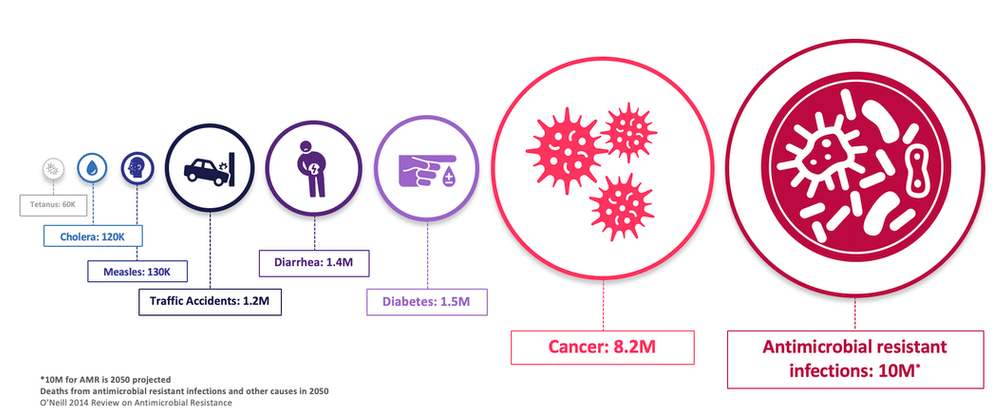Three Canadian pharma stocks for your portfolio

The global pharmaceutical and biotech industry has been getting a lot of attention over the past year and a half, and rightly so, with drug companies coming through with COVID-19 vaccines and therapies under unprecedented timelines. But the sector goes well beyond COVID, of course, and with a dizzying array of subfields, companies in various stages of R&D and commercialization, not to mention the high risk/high reward nature of the beast, pharma and biotech is definitely a sector where investors could use a helping hand. With that in mind, Cantech has three analyst-approved Canadian companies to consider.
Starting in no particular order with Vancouver-based Zymeworks (Zymeworks Stock Quote, Charts, News, Analysts, Financials TSX:ZYME), a cancer-focused clinical-stage company developing antibody-based therapies and working on lead asset zanidatamab, which is currently in Phase 2 trials for several cancers. Zymeworks also has second candidate ZW49 in Phase 1 safety and efficacy studies across a number of cancers.
Paradigm Capital analyst Scott McAuley delivered a report on Zymeworks on September 13 where the analyst highlighted the opportunity in zanidatamab to replace drug Herceptin as the standard of care in the treatment of HER2-positive metastatic breast cancer. Zymeworks recently (September 16) presented data on the Phase 2 data of zanidatamab plus chemo in first-line gastroesophageal adenocarcinoma (GEA), with McAuley commenting in his report on the abstract release prior to the presentation, saying,
“The data released in the ESMO2021 abstract demonstrates that zanidatamab plus chemo could be superior to Herceptin plus chemo in first-line GEA. While the number of patients to date is low, zanidatamab plus chemo is showing superior cORR and DCR relative to the current standard of care. With the potential for additional patients in the final presentation on [September 16], there is an opportunity to grow this gap even further,” McAuley wrote.
The analyst said Zymeworks’ efforts with zanidatamab are leading up to a crucial Phase 3 study directly comparing the drug to Herceptin, potentially leading to zanidatamab being approved for the first-line setting for treating HER2-positive GEA. Zymeworks received FDA clearance for the trial in May with McAuley saying a launch is expected in the second half of 2021 and a trial completion timeline of the end of 2023.
“We are expecting more data from ZYME over the next four to six months than we have seen in the past 18 months, which provides opportunities to drive more interest in the name,” McAuley said.
With the update, McAuley maintained his “Buy” recommendation and $60.50 target for Zymeworks, which represented a projected one-year return of 87 per cent. (All returns are listed as per publication date of the analyst’s report.)
Next up is Halifax-based infectious disease drug developer Appili Therapeutics (Appili Therapeutics Stock Quote, Charts, News, Analysts, Financials TSX:APLI). Last October, Appili announced a collaboration with Dr. Reddy’s and Global Response Aid (GRA) to develop Fujifilm Toyama Chemical’s antiviral drug favipiravir for the treatment of COVID-19, with Appili currently in a Phase 3 PRESECO trial looking at the impact of favipiravir on time to COVID-19 symptom resolution, on progression to more severe COVID-19 disease and on time to viral clearance.
Appili recently reported that enrolment has been completed for the trial and top-line data should be available within two months.
Commenting on the company and stock in a September 20 report, Leede Jones Gable analyst Douglas Loe said a recent funding announcement gives a boost of confidence in Appili, where Fujifilm Toyama Chemical has provided an additional US$1 million in funding, saying it’s “an encouraging signal on Fujifilm’s sustainably positive regard for favipiravir’s potential in treating viral respiratory infection, and COVID-19 specifically,” Loe wrote.
“In consideration of [the new funding announcement] as well as recent PRESECO trial updates, we anticipate that the trial is now fast approaching completion. As such, we continue to anticipate that Appili remains on pace to generate 28-day clinical recovery data by CQ321,” Loe said.
With the update, Loe maintained his “Speculative Buy” rating and 12-month target of $2.75, which translated to a projected return of 187 per cent.
Last is Bellus Health (Bellus Health Stock Quote, Charts, News, Analysts, Financials TSX:BLU), a clinical-stage biopharm company currently working on therapeutics for chronic cough and other hypersensitization-related disorders. Laval, Quebec-based Bellus proved a disappointment for investors last year after negative results from a Phase 2 trial for its lead drug BLU-5937. But the company is now in a Phase 2b trial with the drug, a four-week, randomized, double-blind, placebo-controlled trial for refractory chronic cough (RCC) patients. The trial is testing three different dose strengths with each cohort enrolling 60 subjects.
The market is huge for chronic cough and so Bellus’ interim results on the SOOTHE Phase 2b trial, delivered mid-September, caused the stock to jump by over 50 per cent, with the study results showing at least one dose of BLU-5937 met a stringent predefined probability threshold for a clinically meaningful reduction in cough frequency, with limited taste adverse events and no serious adverse events.
The news and Bellus’ overall prospects were enough to cause Research Capital analyst André Uddin to keep his “Speculative Buy” rating in a report to clients on September 13 while raising his target from $6.00 to $11.10 for a projected return of 127 per cent. Uddin lifted his forecasts for Bellus on renewed optimism for its chronic cough product, starting in 2025 at $66.6 million and heading all the way to $1,011.6 million by 2032.
“We believe BLU-5937 is potentially a better product than Merck’s gefapixant due to lower taste-related adverse events. We are increasing our sales estimates of the candidate in the chronic cough indication across the board,” Uddin wrote.
“Besides the SOOTHE top-line results, BLU should have another binary catalyst in Q4 – top-line results of the Phase 2 BLUEPRINT trial with BLU-5937 in atopic dermatitis induced pruritus. We expect BLU to trade up for the two key catalysts,” he said.


